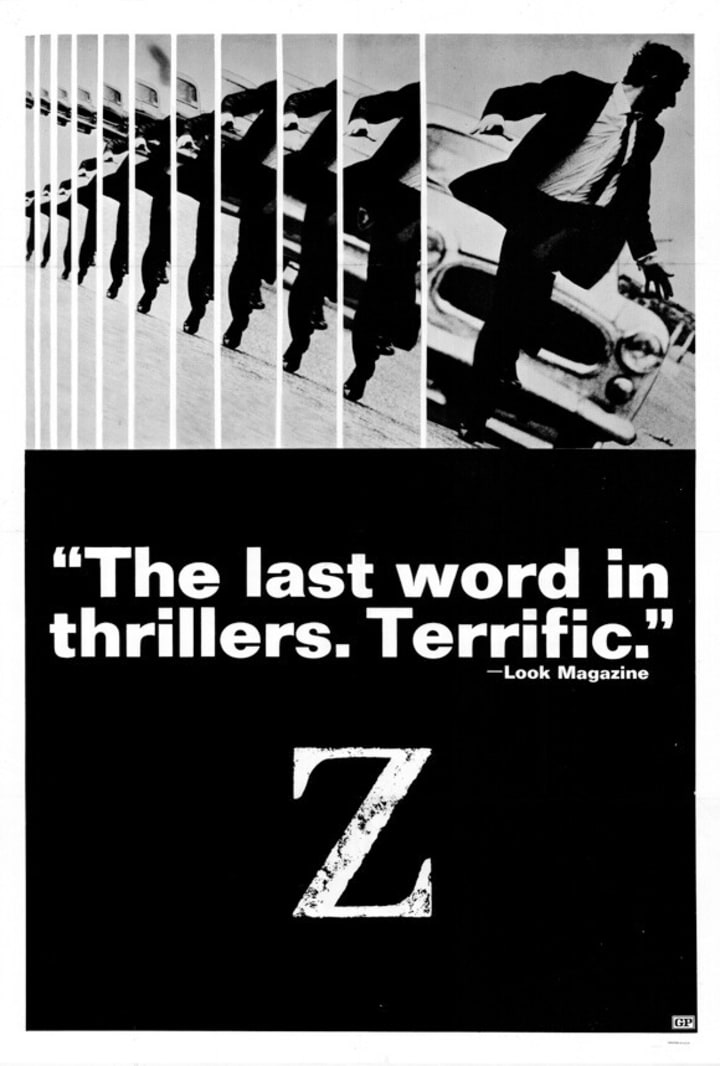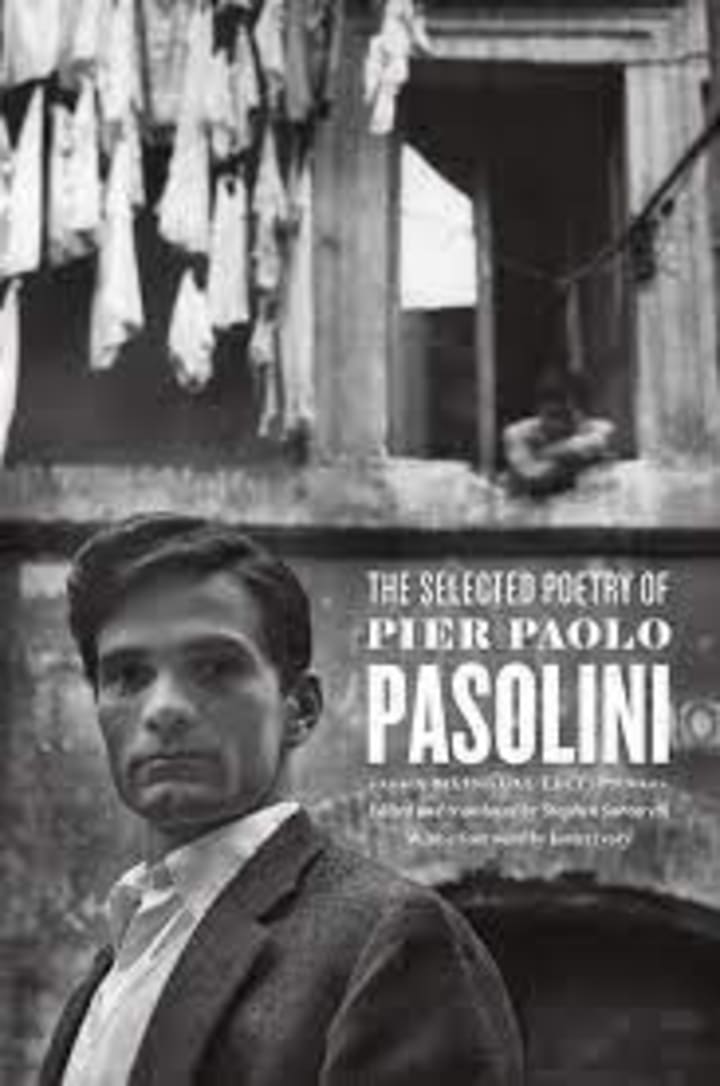Unfortunately, we are years away from the political cinema of the past.
Let's have a look at the political cinema of the present and the past.

Well yes, as you understand from the cover image I did watch the recent film with the title "Don't Look Up". I personally believe that it was a well-scripted and well-directed film, with an impressive cast and a good sense of humour. And here comes the "big" But. With a few "scrolls" on social media, I saw from many viewers and writers, an effort to depict the movie as a really provocative satire, to such an extent that elevates political humour to a new level. With all respect to the creators and the amazing cast of actors, the level of political humour could barely surpass a John Oliver's episode of news commentating. My point here is not to project a nostalgic point of view, on which I only appreciate specific eras of cinema, not that I do not. But I really believe that there are some amazing examples of political cinema, even this year with Michel Franco's film "New Order", or with "Stalin's Death" some years ago. I hate to be the bearer of bad news but films like that, are getting less quoted on mainstream media and less accessible on mainstream platforms and average cinemas. But was there a period in which political films were mainstream? If you asked that question while reading this paragraph, then thank you. Well in this article I would explore how political films used to and can still influence cinema in a profound way. Bringing some examples of my own upbringing in Greece I country of exceptional filmmakers like Theo Angelopoulos, Costas Gavras and many others.
Unfortunately, many of you might not be familiar with these filmmakers anymore, but I promise you, from their awards in international festivals and from the influence that they left behind, you will understand the importance of political cinema in the past. So, allow me to start with Greece, a relatively small country, with an enormous background in culture and history. And while many people only reminisce about the ancient background, even though I do not blame them. Culturally Greece has offered a lot and it still can offer even more. From great poets like Seferis, Kavafis, Ritsos and many others, to filmmakers. But let me talk to you today about the filmmakers with a promise of talking about poetry and more culture in the future. I would like to offer just two examples of Greece’s political cinema. Two examples with enormous global recognition that remains vivid to these days. I am talking about Costas Gavras and Theo Angelopoulos. Starting with Gavras I deem it necessary to mention his impact on the world’s cinema with the movie “Missing”. A movie about an American writer who got lost in Chile, in the middle of the coup d’etat in 1973. Depicting the attempt of his father and his wife on trying to find him, in a Chile lost on a deep political crisis, with the rise of the dictator Pinochet and the struggle of Chilean people for freedom, as well as the political struggle of the left, in a dictatorship that tortured, killed and tried to literally erase them. Another extraordinary film of Gavras, refers to the political crisis and struggle in Greece, with the death of Grigoris Labrakis, a doctor and athlete with a strong career and influence in the left-wing of the cold war Greece. Who was murdered by agents of the “deep” state, causing lots of uprising and protest for his unfair death. In both of these examples, a capable filmmaker takes two real events and transforms them, from news into art. With a great cast of actors and a capable form of directing in both of these movies, Gavras manages to not only absorbs the viewer’s attention but also to make them feel and show them the true face of struggle and injustice. Gavras films are not only films but a political act, against any form of injustice. In a beautiful and realistic way, he is capable of showing true characters, without any form of desperate or deliberate propaganda. This is, for starters, what lacks for the film, “Don’t Look Up”. Do not get me wrong here, I never expected this film to be realistic in a way of events. It talks about a meteorite hitting the earth. But the characters themselves are not realistic, they are small versions of themselves following cheap cinematic cliches. Like the troubled scientist who gets betrayed, the other troubled scientist who is losing himself in the face of achieving some publicity and in general a bunch of other characters who react like “comic reliefs”. Which sometimes can be useful in a comedy, but not when each and every character is comic relief. From Jonah Hill, who does it successfully, to Meryl Streep, Cate Blanchett, Timothee Charlamet and in the end the whole cast. It might be a form of surrealism I could not grasp, but when you are trying to make a political film or at least when you believe you saw one it needs, in my opinion, a form of honesty and idealism, in what is happening. This demands a form of political realism in the face of characters and not necessarily on the events. Here I am mentioning a movie that achieved perfectly, what this movie could not. I am talking about the movie “The Death of Stalin”. A movie which is comedy and has some “comic relief” characters, like Steve Buscemi and even though it talks about an imaginary event, it still manages to retain a form of political realism, of the true face of the people at those times. No matter how naïve they might seem. This is the perfect example of making a political comedy.

But allow me to get away from the movie and continue with more references to political movies that deeply influenced cinema. Finishing with Greece, I owe to talk about one of the filmmakers that influenced not only cinema but also me individually as a person. From Costas Gavras, who manages to motivate you into political actions, I want to move to a filmmaker, whose each scene can be easily seen as a poem. Theo Angelopoulos managed to show Greece in such a realistic way, politically and sociologically like no other. And he managed to do that through fiction. From the lost poet in Thessaloniki of the ’90s, trying to finish the work of Dionisios Solomos, another poet lost in the times of the Greek revolution. To a lost filmmaker in the upset Balkans of the 90s seventies, trying to find the first copy of a film and maybe even himself, through his own “Odyssey” of love, pain, memories and loss. I am referring of course to the movies; “Eternity and a day” and “Ulysses Gaze”. Two fictional movies depict beautifully the real scene of political unrest, the people.

Moving forward and away from Greece to the rest of European Cinema I would also like to mention a few examples of movies that would definitely suggest anyone to watch. Starting with Germany and the film “Das Leben der Anderen” or in English, “The Lives of Others”. A dramatic film beautifully depicting the lives of the cultural elite of people in East Germany. From the problems, they were facing, being unable to freely express themselves, under a regime that could not even understand Brecht, even though it was supposed to be Marxist. To the abuse of women, by men in power in the hierarchy of the “Party”. A movie, awarded, with one Oscar, one Bafta and multiple Golden Globes and all of that in a year. A movie that I promise you that if you see it while wake the deepest will to act against injustice and the deepest feelings of empathy and understanding. Another good example, of political comedy, from German cinema, is the movie “Goodbye Lenin”. A beautiful example depicting the transitions in peoples lives in East Germany, after the fall, just by following the life of a family.
Then let's take an example of a political film, from a collaboration of British and Spanish cinema and the movie “Land and Freedom”. A truly legendary movie that has been known for showing in an amazing way the reality of the Spanish civil war, as well as the fractions in the left front of the civil war. By showing the love of two young people one from Spain and one from England. And since we are talking about love, allow me to mention a filmmaker that truly understood and showed love and passion to a new cinematic level. I am referring to the renowned Italian filmmaker, Pier Paolo Pasolini. With just mentioning two movies out of his extraordinary filmography. The canterbury tales, and the 120 days of Sodom, two movies unravelling the erotic reality of societies through a socio-political critic and an aesthetic gaze.

But you may ask, Am I being too demanding? No matter the recent movie I am criticizing, these are some legendary directors that everyone would be lesser compared with them. In this point, I want to remind you that I am not criticizing just the movie or the director, but also the people who perceived it as a filmic masterpiece of political satire, ignoring, a whole tradition of political cinema that is still standing timeless and waits for us to discover it. But I am also willing to show you some other examples of more mainstream cinema from the years that passed to this year that will be passing in a few hours. Let’s take the example of Dany Boyle’s Trainspotting. Both of his films, and especially the first one, are depicting the adventures of Scottish youth, through a socio-political tale of addiction, freedom and loss. There is no other movie that manages to emphasize in such a good way on the timeless issue of drugs that still remains a crucial societal issue. Or should I mention examples of science fiction like blade runner, which shows a dystopic post-capitalist future run by companies and emphasizes the issue of free will. Or even a more utopic TV Series like Star Trek, which shows, how humanity having solved the problems of survival and autarky turns into space and still tries to find answers in Moral and political decisions.

Last but not least, I would like to mention a movie from this year, that may have seemed unnoticed, but it is still a political film, without claiming to be. And no. I won’t choose the easy task of just mentioning Michel Franco’s “New Order”, even though is an amazing film from many perspectives, from the political to the aesthetic. But I will mention Zola, a film about two strippers having a road trip in Florida. A movie that manages to show the social reality of the United States, and the normalization of abuse and even rape that many women are facing, not only in the stripping industry, but in general, and all that into a movie of showing a rotten reality that can be summarized in dollar bills, drugs, abuse and wealth. Yes, Zola for me, is a better political movie than “Don’t Look Up”.
No, not because the first one is an independent film and the other one comes (ironically) from a multinational company that is trying to monopolize the film industry and has killed a lot of cinemas and venues. Because Zola is true, it doesn’t have to “scream” that its concept will include political and sociological analysis. It is showing it to us. The same goes for all the other films. Trainspotting is not trying to “scream” that the movie is full of junkies and poverty. It is showing it, Pasolini did not try to pretend that he is provocative, his filmic gaze showed a reality, his own, that was more realistically depicted than our social norms, and so on. “Don’t Look Up”, even though it has a few good moments, is “violating”, one of the first beginners’ rules of screenwriting. “Show don’t tell”. It ends up reminding me more of a Saturday Night Live sketch, than an actual movie. Some people may like it but allow me to be sceptical or even sarcastic when it is depicted as a major political film because in my opinion is not.

Sergios Saropoulos
About the Creator
Sergios Saropoulos
Philosopher, Journalist, Writer.
Found myself in the words of C.P. Cavafy
"And if you find her poor, Ithaka won’t have fooled you.
Wise as you will have become, so full of experience, you’ll have understood by then what these Ithakas mean"






Comments
There are no comments for this story
Be the first to respond and start the conversation.